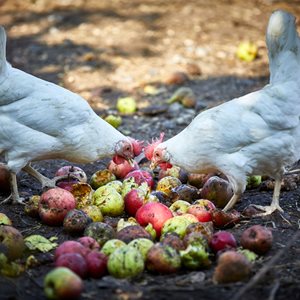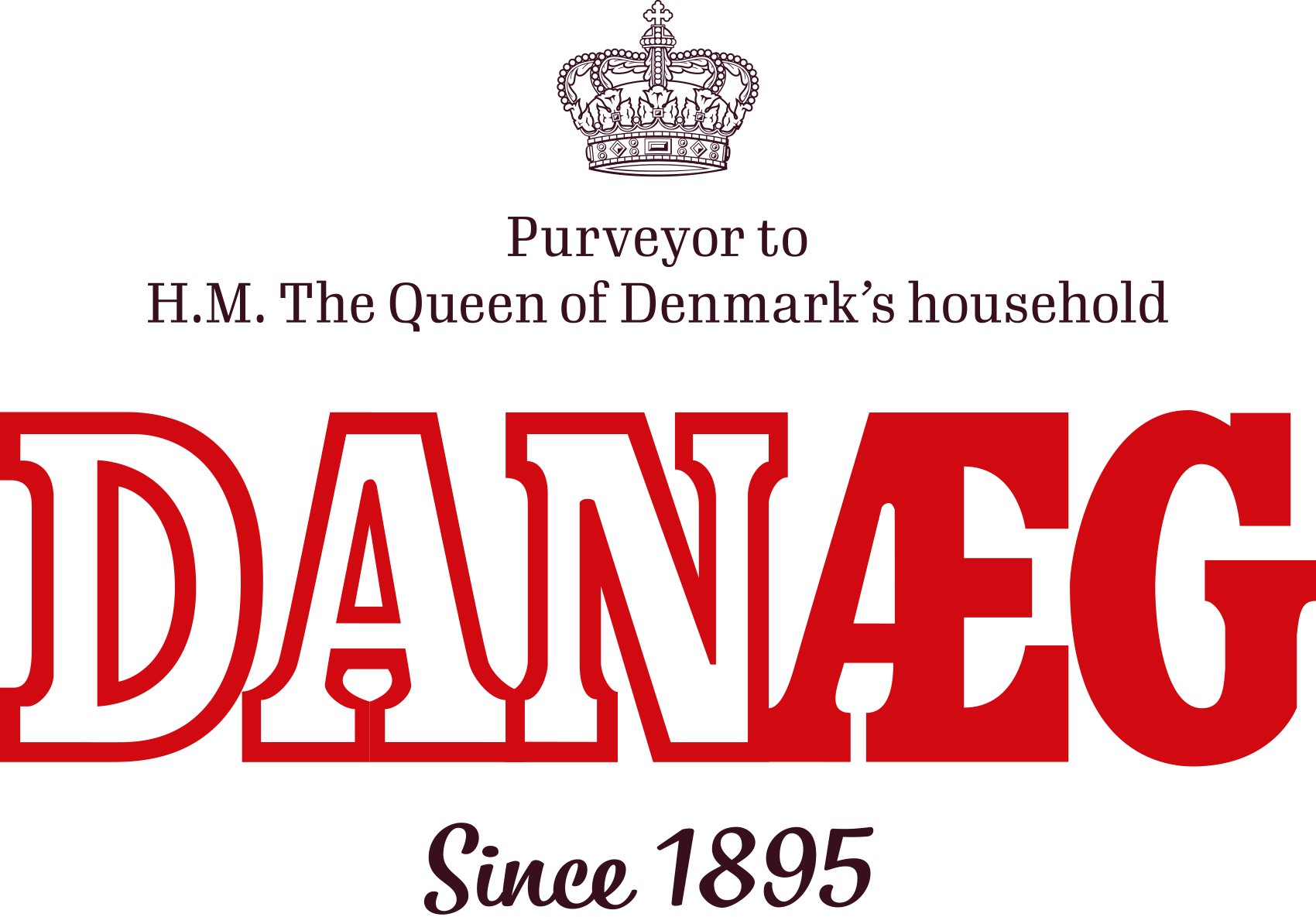
SUSTAINABILITY
Initiatives at production
Kraghøjgård: hens with an orchard
- Organic production makes a big and positive difference for the animals and for nature in general, says farmer Allan Breum Larsen. His parents converted the farm to organic farming in 1980 and were among the first to start a major organic egg production. In other words, Allan has grown up with an organic mindset, and he is strongly and clearly passionate about the organic production method.
In 2000, Allan Breum Larsen took over ”Kraghøjgård” after his parents, with 15,500 organic laying hens, organic cattle, orchards, bees, and 140 hectares of plant breeding. He grows wheat, oats, barley, peas, and horse beans for animal feed.
At Kraghøjgård, the hens roam freely in the farm’s orchard. The trees make the hens brave and safe because they can quickly seek refuge under them. At the same time, they can go and chop in the fallen fruit, as a supplement to the rest of the feed.
- They get a lot of nutritious food from the fallen apples and from the insects and larvae that would otherwise attack the fruit trees. In this way, the hens’ health and well-being are greatly improved - and our apples have a lower injury rate. The trees also benefit from the hens’ manure, Allan explains.



Tvedemose: hens, apples, and mushrooms in symbiosis
Jens Christian Hansen and his wife Kirsten are entrepreneurs to the core, who see opportunities where others see closed doors.
In the "backyard", Jens Christian has organic hens, whose hen farm is located in a lush orchard, where the hens can move freely around the large, green areas.
All the pears and apples, that the hens cannot get their beaks into, are harvested, mashed, and poured into bottles at the farm. In the fall months, the parking lot is filled with the trailers of the locals, who come for freshly squeezed must.
At Tvedemose, the production is not only focused on hens and apple sauce, but also on organic mushrooms. Jens Christian and his wife own Denmark's largest, organic mushroom production.
The quality of the soil, in which the mushrooms grow, is absolutely crucial in order to be able to produce high-quality mushrooms. For that reason, makes Jens Christian the soil himself. The mushrooms grow in nutrient-rich soil made from compost, which Jens Christian produces in the building behind the mushroom production. The compost is made from straw, which is mixed with horse litter and the organic manure from the chicken farm.
The compost then undergoes a process, under controlled temperature and oxygen conditions, where it is converted into a fungal nutrient substrate. During the process, the ammonia is removed from the manure. The ammonia is collected in an acidification plant so that it can be recycled on new compost.



Recycling: from used newspaper to egg tray
More eggs, but not more tray waste
In Tønder on the border with Germany, Hartmann breathes new life into used, curly newspapers. Every day, more than 100 tonnes of recycled paper is converted into pulp and comes out on the other side as label-free egg trays as clean canvases in all the colors of the rainbow. This provides us the opportunity to do our best to give each egg tray a completely unique atmosphere. By using recycled paper, Hartmann helps to reduce Danæg's waste and reduce CO2 emissions.
Hartmann's trays are produced from 100% recycled paper, and the factory uses more than 100 tonnes of raw material in production every day. On an annual basis, this corresponds to Hartmann purchasing 1/5 of all recycled paper in Denmark. Since 2012, Hartmann has also been FSC-certified and has thus committed itself to contribute to sustainable deforestation. In an FSC forest, no more trees are felled than the forest can reproduce, while both flora and fauna are being taken into account.



DLG towards a more sustainable future
The DLG Group, one of Europe's leading agricultural and energy companies - who is also a co-owner of Danæg, has a great ambition to contribute to creating a better and more sustainable future for generations to come. This requires action, and therefore The DLG Group has initiated a specific and thorough strategy, called ZERO.
"The title of our sustainability plan is ZERO, because it sums up the thinking behind a large number of the goals we will work to achieve. We want to minimize our impact on the climate and the environment so that by 2050 our operations are climate-neutral. We want to help combat deforestation in South America by purchasing only verified deforestation-free soy. We want to create a workplace that is free of accidents and where discrimination does not exist."
The climate goals are aligned with the objectives of the Paris Agreement as well as the UN Climate Panel IPCC’s recommendation to limit global warming to 1.5°C relative to pre-industrial levels.
DLG has done extensive work to ensure that the feed mixtures are climate-declared in a fair manner. DLG uses average standard values and defined guidelines from the international feed industry: the Global Feed LCA Institute (GFLI), which is recognized by the EU. It is combined with DLG’s feed database and concrete data from DLG’s feed production and logistics. “Our customers will also be able to choose a feed mixture that is climate-optimized, just as we currently optimize for protein, energy and other nutrients,” says Jesper Pagh from DLG.



